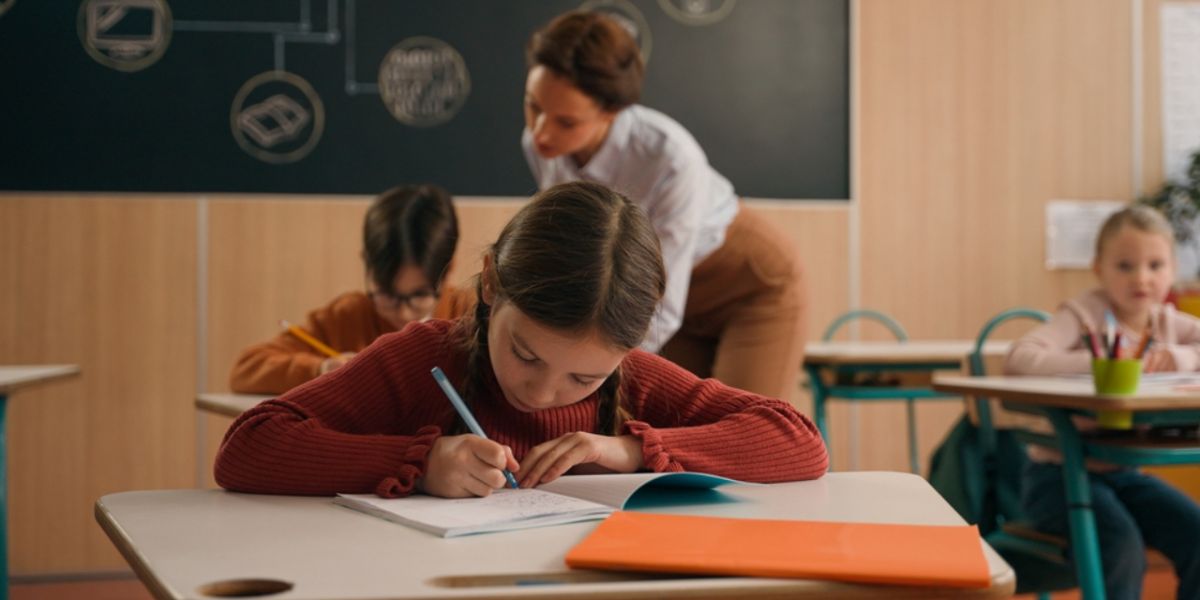
If you want to provide your children with the right education in Thailand, you have to start out by getting to know the education system. In this guide, we'll look at all the education options you have as an expat family in Thailand.
Before we take a deep dive into Thailand's education system, you should know a few things first:
- Thailand has government, private, and international schools, each open to expat families.
- The alternative school movement and homeschool movement are growing in Thailand.
- Thailand has some of the best-ranked universities in the world.
Core subjects in Thailand
Thailand's Ministry of Education oversees public education in the country and has mandated that children learn at least the following subjects: arts, careers and technology, health and physical education, math, religion and culture, science, social studies, and Thai language.
Government schools in Thailand
Government schools are the most abundant of all schools in Thailand. Parents don't have to pay to send their children to government schools, as they are free for Thai nationals up to 15 years old. However, education standards and school settings are not the greatest. Students aren't encouraged to ask questions, and education simply revolves around rote learning. Classrooms are often packed as well, with up to 60 students for one teacher. Thailand's public schools have two semesters — May to September and October to February.
Private bilingual schools in Thailand
Private bilingual schools are the main choice for middle-income families in Thailand. They are a big step up from government schools and offer more subjects than just the core subjects mentioned above. Oftentimes, classes at private bilingual schools are taught in Thai and English. Teachers are paid a much better salary as well. All of this means that your children will get a better education under more qualified teachers. Tuition at private bilingual schools starts at THB 100,000 per year and can go up to hundreds of thousands. Private bilingual schools in Thailand also have two semesters—May to September and October to February.
International schools in Thailand
International schools sit at the top end of the education system in Thailand. They are the most expensive, but they also provide the best opportunities for children and expat families living in Bangkok. Yearly tuition for international schools starts at THB 200,000 on the lower end and goes all the way up to THB 1 million on the higher end for a school like Bangkok Patana. Teachers are highly qualified, and the curricula at these schools vary, meaning your children can study the same subjects they would back home, no matter where in the world you come from. And if you ever move back to your home country, your children can slide right back into the school system. Some of these curricula include:
- American curriculum;
- British curriculum;
- Australian curriculum;
- Canadian curriculum;
- International Baccalaureate;
- Singapore curriculum;
- Japanese curriculum.
Temple schools in Thailand
Temple schools in Thailand are a step down from government schools. They are mostly reserved for children in remote areas of the country where government schools aren't accessible. Temple schools run off donations and lack many of the basics, like books and stationery. Because temples can't afford to pay teachers, monks often teach the students. Temple schools are mostly a last resort for families in Thailand.
Alternative schools in Thailand
Because parents have lost faith in the Thai government school system, many alternative schools have begun to appear throughout the country. Tuition for alternative schools isn't always cheap, though. Some of these schools can charge as much as THB 200,000 per year. These alternative schools still teach the core subjects, but they also focus on emotional intelligence and being outdoors in nature. Waldorf, Montessori, and Forest schools are some of these alternatives.
- Panyotai Waldorf School;
- Siratthaya Waldorf Learning Center;
- Moo Ban Dek;
- Roong Aroon;
- Amatyakul School.
Homeschooling in Thailand
In 2004, the Thai government made homeschooling legal in Thailand. This gave Thai families the option to educate their children themselves instead of sending them to a government school or paying for steep tuition costs at an international school. However parents must follow some guidelines to homeschool their children legally, such as teaching at least the core subjects and submitting yearly curricula. Keep in mind that these guidelines only apply to Thai parents. Expats who want to homeschool their children in Thailand should follow the guidelines of their home country/state.
Universities, vocational schools, and colleges in Thailand
Thailand is home to many prestigious universities, such as Mahidol University and Chulalongkorn University. Credits from the top universities in Thailand are accepted all over the world, so if you send your children to one of these schools, they will be able to transfer their credits to another university if they choose to study elsewhere. University costs are also much less expensive in Thailand than in Western countries, and teachers are well-vetted and highly qualified. At Chulalongkorn University, for example, students study under some of the best-practicing doctors in Bangkok.
Vocational schools are popular in Thailand for those who want to focus on a trade such as industry, agriculture, fishing, tourism and hospitality, arts and crafts, and commerce. These schools let students dive deeper into their subjects and often work with companies to secure students a job upon graduation.
Colleges are similar to universities in Thailand, but their credits aren't always recognized outside of the country. They also cost a lot less than universities, but teachers are often less qualified and educational standards are lower.
Language schools in Thailand
Language schools in Thailand are popular for both Thais and expats. Because government schools don't teach a second language, Thai families often send their children to study English or Mandarin at a language school. Expats also use language schools to study Thai or another language, which could qualify them for a Thai education visa.
We do our best to provide accurate and up to date information. However, if you have noticed any inaccuracies in this article, please let us know in the comments section below.








